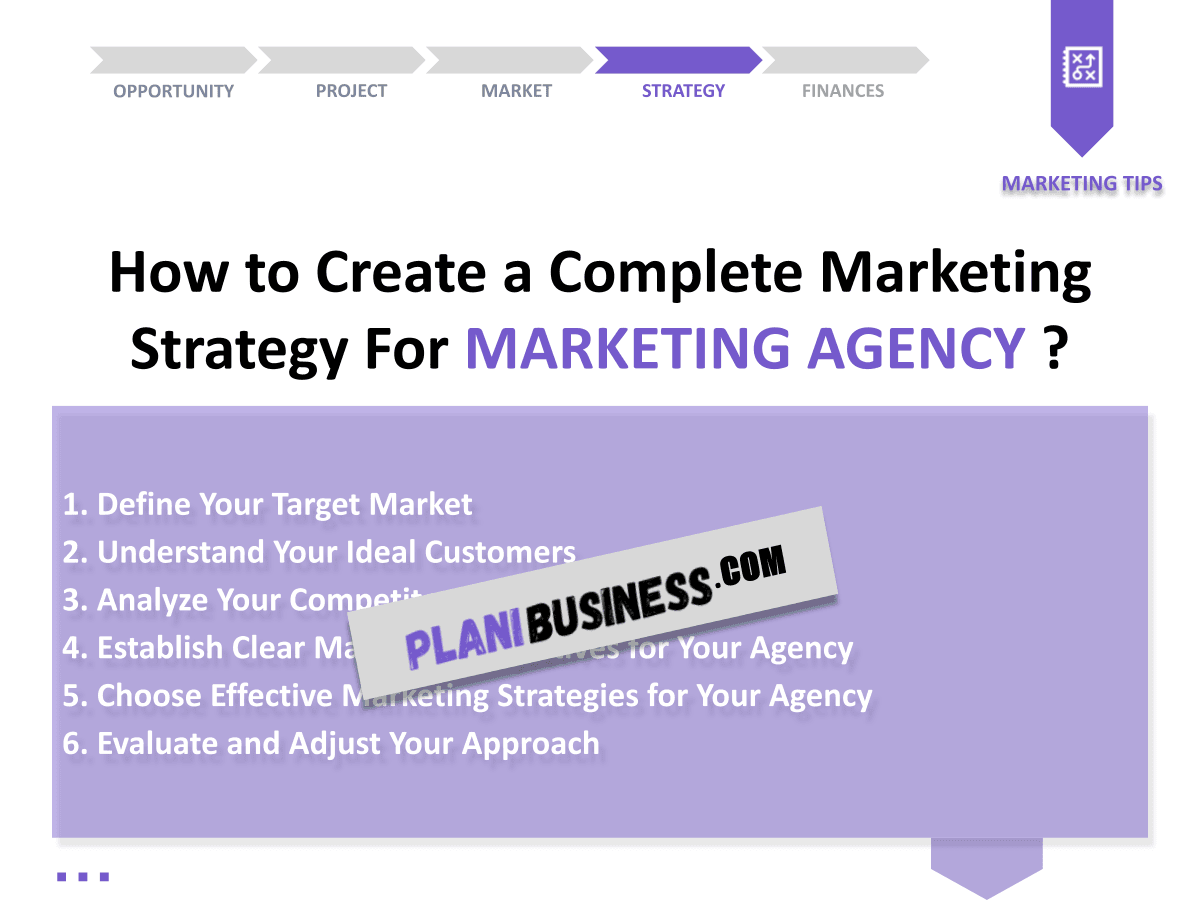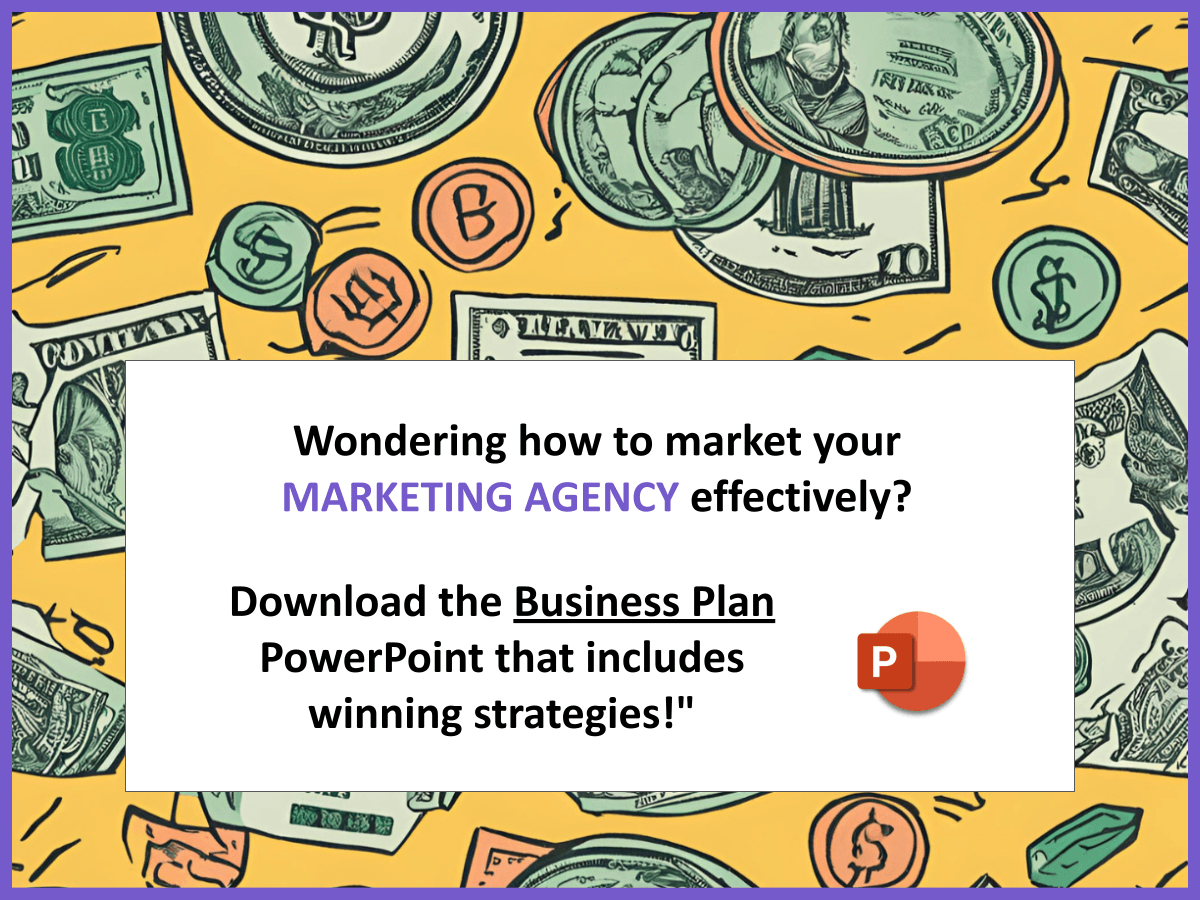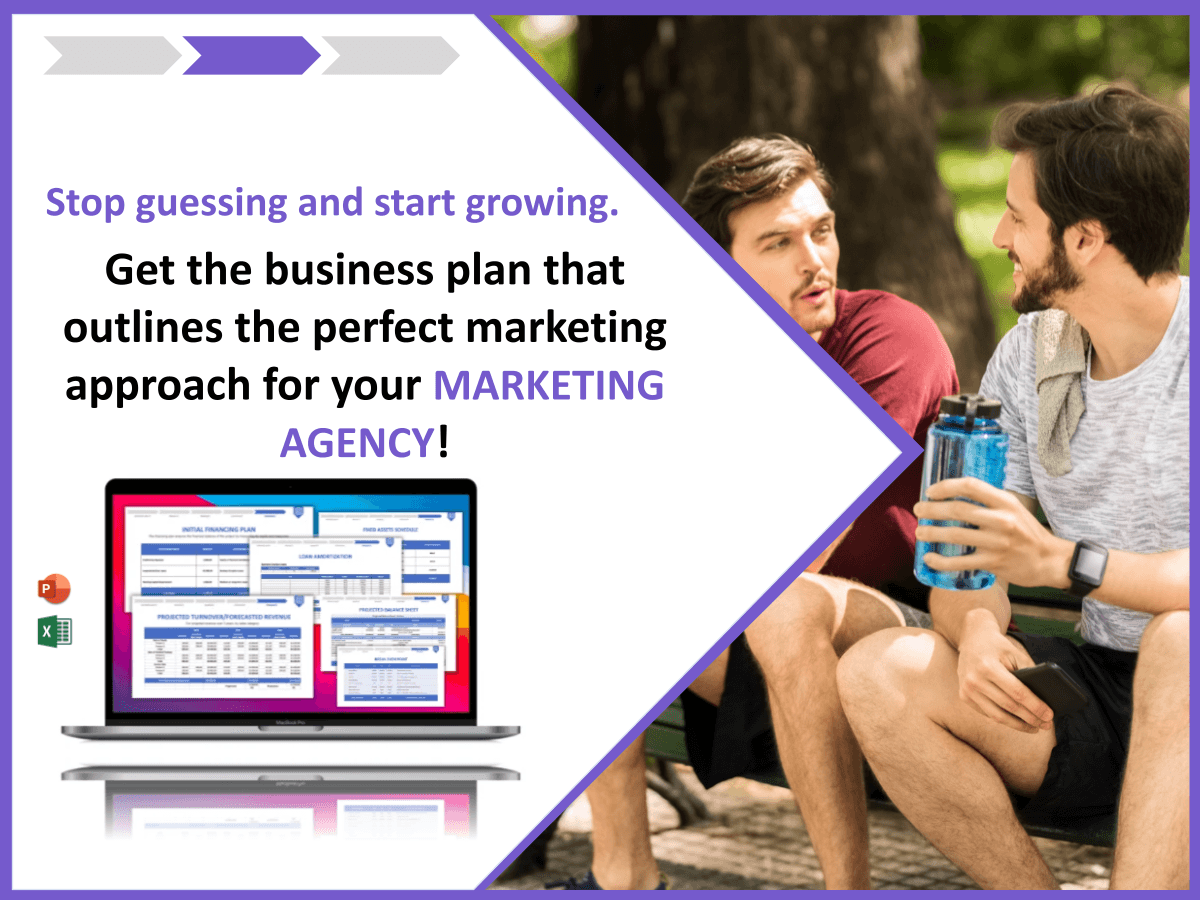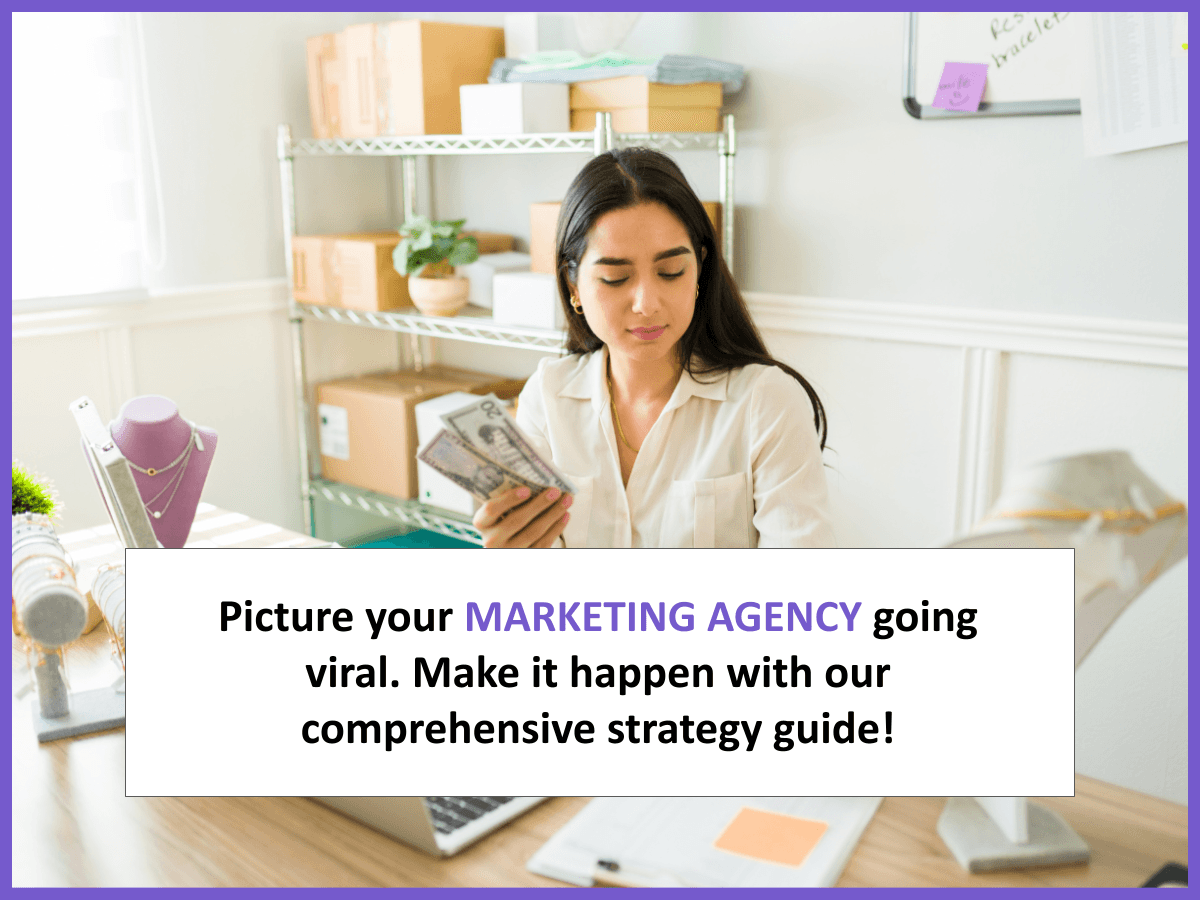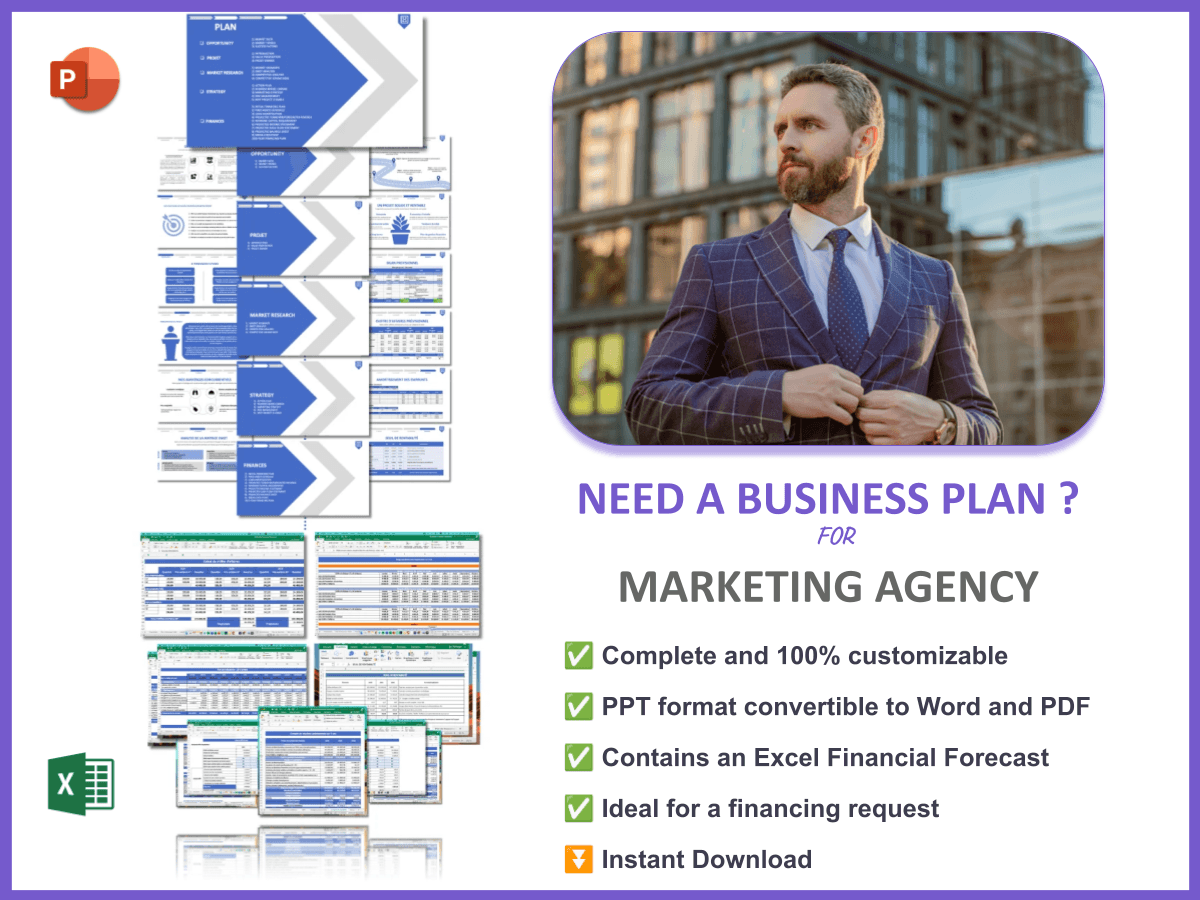Did you know that nearly 70% of marketing agencies fail due to poor planning? You’re not alone in wanting to avoid this fate! A well-structured Marketing Agency Marketing Plan is essential for any agency looking to thrive in a competitive landscape. Essentially, it’s a strategic roadmap that outlines your marketing goals, target audience, and the tactics you’ll use to reach them.
To build a successful Marketing Agency Marketing Plan, the first step is to define your target market. Understanding who your potential clients are will significantly impact your agency’s direction and success. It’s not just about knowing the demographics; it’s about grasping the nuances that make your market unique.
1. Define Your Target Market
| Aspect | Details |
|---|---|
| Demographics | Age, gender, income level, education |
| Geographics | Location specifics |
| Psychographics | Interests, values, lifestyle |
Defining your target market involves understanding various aspects:
- Demographics: Age, gender, income level, and education play a crucial role in segmenting your audience.
- Geographics: Knowing where your target audience is located helps tailor your strategies effectively.
- Psychographics: This dives deeper into the interests, values, and lifestyles of your audience, which can be pivotal in crafting messages that resonate.
For instance, a digital marketing agency might focus on small businesses in urban areas that prioritize online presence. By pinpointing these characteristics, you’ll be better equipped to create a compelling value proposition that speaks directly to your target market.
2. Understand Your Ideal Customers
| Criteria | Description |
|---|---|
| Needs | What problems are you solving? |
| Behavior | How do they interact with similar services? |
Once you have a grasp on your target market, the next step is to delve into understanding your ideal customers. This is crucial because it helps you tailor your services to meet their demands effectively.
Consider these aspects:
- Needs: Identify the specific problems your customers face that your agency can solve. This could be anything from increasing brand awareness to improving customer engagement.
- Behavior: Analyze how your ideal customers interact with similar services. This insight can guide your marketing strategies and help you position your agency as the best choice for them.
By knowing your ideal customers intimately, you can create targeted campaigns that resonate deeply, making it more likely for them to choose your agency over competitors.
3. Analyze Your Competitors
| Competitor | Strengths | Weaknesses |
|---|---|---|
| Competitor A | Strong brand presence | High pricing |
| Competitor B | Wide range of services | Poor customer service |
Understanding your competition is crucial for a successful Marketing Agency Marketing Plan. By analyzing their strengths and weaknesses, you can position your agency uniquely in the market. Here’s how to approach this:
- Identify Competitors: Make a list of direct competitors in your niche. Look for agencies that offer similar services and target the same audience.
- Assess Strengths: What are they doing well? Maybe they have a strong online presence or a loyal customer base. Recognizing their strengths can help you identify what you need to compete against.
- Evaluate Weaknesses: Are there areas where they fall short? Perhaps they have high prices or inadequate customer service. These weaknesses present opportunities for your agency to stand out.
By understanding the competitive landscape, you can tailor your offerings and marketing strategies to fill gaps and better serve your target audience.
4. Establish Clear Marketing Objectives for Your Agency
| Objective | Target |
|---|---|
| Increase leads | By 25% in 6 months |
| Improve client retention | By 15% in 1 year |
Setting clear, measurable marketing objectives is essential for tracking your progress in your Marketing Agency Marketing Plan. Here are some key steps to consider:
- Specificity: Your objectives should be clear and specific. Instead of saying “increase sales,” specify “increase leads by 25% in 6 months.”
- Measurability: Make sure your objectives are measurable. This allows you to track progress and make adjustments as needed.
- Achievability: Set realistic targets based on your current resources and market conditions. It’s important to challenge yourself but also to remain grounded in reality.
- Relevance: Ensure that your objectives align with your overall business goals. They should contribute to the long-term success of your agency.
- Time-Bound: Establish deadlines for your objectives. This creates urgency and helps you stay focused on achieving your goals.
By having clear objectives, you’ll be able to measure your success effectively and adjust your strategies to ensure that your Marketing Agency Marketing Plan remains on track.
5. Choose Effective Marketing Strategies for Your Agency
| Strategy | Details |
|---|---|
| Content Marketing | Blogs, videos, and infographics |
| Social Media Marketing | Platforms to engage and attract |
Once your objectives are set, it’s time to select the strategies that will help you achieve them. Choosing effective marketing strategies is crucial for the success of your Marketing Agency Marketing Plan. Here’s how to approach this:
- Content Marketing: Create valuable content that addresses your target audience’s needs. This can include blogs, videos, and infographics that establish your agency as an authority in your niche.
- Social Media Marketing: Utilize platforms like Facebook, Instagram, and LinkedIn to engage with your audience. Regularly posting updates and interacting with followers can boost your agency’s visibility.
- Email Marketing: Build an email list and send newsletters or promotional offers. This is a great way to keep your audience informed and engaged with your services.
- Search Engine Optimization (SEO): Optimize your website and content to rank higher in search engine results. This increases your visibility and drives organic traffic to your site.
- PPC Advertising: Consider pay-per-click campaigns to drive immediate traffic. This can be particularly effective for lead generation if done correctly.
By implementing a mix of these strategies, you can reach your target audience more effectively and achieve your marketing objectives.
6. Evaluate and Adjust Your Approach
| Metric | Target |
|---|---|
| Website Traffic | Increase by 30% |
| Conversion Rate | Reach 5% |
Regular evaluation of your marketing efforts is crucial for a successful Marketing Agency Marketing Plan. Here are some steps to ensure you’re on the right track:
- Set Key Performance Indicators (KPIs): Determine which metrics are most important for measuring the success of your marketing strategies. This could include website traffic, conversion rates, and social media engagement.
- Use Analytics Tools: Utilize tools like Google Analytics to track your performance. These insights will help you understand what’s working and what’s not.
- Adjust Strategies as Needed: If certain strategies aren’t delivering results, be prepared to pivot. This could mean changing your messaging, targeting different audiences, or trying new channels.
- Gather Feedback: Regularly seek feedback from your clients and team members. Their insights can provide valuable information on how to improve your approach.
By consistently evaluating and adjusting your marketing strategies, you can ensure that your Marketing Agency Marketing Plan remains effective and aligned with your goals.
7. Example N°1 of Marketing Plan for a Digital Marketing Agency
| Steps | Actions | Details |
|---|---|---|
| 1 | Target Market | Small businesses in tech |
| 2 | Ideal Customers | Startups looking for growth |
| 3 | Competitors | Local agencies with similar services |
| 4 | Marketing Objectives | Increase brand awareness by 40% |
| 5 | Marketing Strategies | SEO and social media campaigns |
| 6 | Evaluation | Monthly performance reviews |
This is an example of a Marketing Agency Marketing Plan for a digital marketing agency:
- Target Market: Focus on small businesses in the tech sector that need assistance with online marketing.
- Ideal Customers: Target startups that are eager to grow their online presence and customer base.
- Competitors: Analyze local agencies offering similar services to identify competitive advantages.
- Marketing Objectives: Set a goal to increase brand awareness by 40% within the next year.
- Marketing Strategies: Implement SEO and social media campaigns to engage potential clients.
- Evaluation: Conduct monthly performance reviews to assess the effectiveness of your strategies.
8. Example N°2 of Marketing Plan for a Social Media Agency
| Steps | Actions | Details |
|---|---|---|
| 1 | Target Market | Brands with limited online presence |
| 2 | Ideal Customers | Mid-sized businesses |
| 3 | Competitors | Established social media firms |
| 4 | Marketing Objectives | Boost engagement by 50% |
| 5 | Marketing Strategies | Content creation and influencer partnerships |
| 6 | Evaluation | Weekly analytics review |
This is an example of a Marketing Agency Marketing Plan for a social media agency:
- Target Market: Focus on brands that have a limited online presence and are seeking to enhance their visibility.
- Ideal Customers: Mid-sized businesses looking to improve their social media engagement.
- Competitors: Analyze established social media firms to learn from their strategies.
- Marketing Objectives: Set a goal to boost engagement by 50% within six months.
- Marketing Strategies: Focus on content creation and forming partnerships with influencers to reach broader audiences.
- Evaluation: Conduct weekly analytics reviews to track progress and make necessary adjustments.
9. Example N°3 of Marketing Plan for a Branding Agency
| Steps | Actions | Details |
|---|---|---|
| 1 | Target Market | New businesses needing brand identity |
| 2 | Ideal Customers | Entrepreneurs and startups |
| 3 | Competitors | Local branding firms |
| 4 | Marketing Objectives | Increase client base by 20% |
| 5 | Marketing Strategies | Workshops and webinars |
| 6 | Evaluation | Quarterly client feedback sessions |
This is an example of a Marketing Agency Marketing Plan for a branding agency:
- Target Market: Focus on new businesses that need help establishing their brand identity.
- Ideal Customers: Target entrepreneurs and startups eager to make their mark in the market.
- Competitors: Analyze local branding firms to identify their strengths and weaknesses.
- Marketing Objectives: Aim to increase your client base by 20% within the next year.
- Marketing Strategies: Host workshops and webinars to educate potential clients about the importance of branding.
- Evaluation: Conduct quarterly client feedback sessions to gather insights and improve services.
10. Example N°4 of Marketing Plan for a Content Creation Agency
| Steps | Actions | Details |
|---|---|---|
| 1 | Target Market | Companies needing content strategy |
| 2 | Ideal Customers | Medium to large enterprises |
| 3 | Competitors | Other content agencies |
| 4 | Marketing Objectives | Enhance service offerings |
| 5 | Marketing Strategies | Email marketing and case studies |
| 6 | Evaluation | Monthly review of client satisfaction |
This is an example of a Marketing Agency Marketing Plan for a content creation agency:
- Target Market: Focus on companies that require a robust content strategy to engage their audience.
- Ideal Customers: Target medium to large enterprises that have established brands but need to enhance their content.
- Competitors: Analyze other content agencies to find your unique selling points.
- Marketing Objectives: Set a goal to enhance your service offerings and attract more clients.
- Marketing Strategies: Utilize email marketing campaigns and showcase case studies to demonstrate your success.
- Evaluation: Conduct monthly reviews of client satisfaction to ensure your services meet their needs.
11. Example N°5 of Marketing Plan for a SEO Agency
| Steps | Actions | Details |
|---|---|---|
| 1 | Target Market | Online retailers |
| 2 | Ideal Customers | E-commerce businesses |
| 3 | Competitors | SEO firms with high rankings |
| 4 | Marketing Objectives | Improve website traffic by 60% |
| 5 | Marketing Strategies | Keyword research and on-page SEO |
| 6 | Evaluation | SEO performance metrics |
This is an example of a Marketing Agency Marketing Plan for an SEO agency:
- Target Market: Focus on online retailers who need to enhance their visibility in search results.
- Ideal Customers: Target e-commerce businesses that rely heavily on online traffic for sales.
- Competitors: Analyze SEO firms that currently rank high to understand their strategies.
- Marketing Objectives: Aim to improve website traffic by 60% within the next year.
- Marketing Strategies: Utilize keyword research and on-page SEO techniques to optimize client websites.
- Evaluation: Regularly track SEO performance metrics to assess the effectiveness of your strategies.
12. Example N°6 of Marketing Plan for a PPC Agency
| Steps | Actions | Details |
|---|---|---|
| 1 | Target Market | Businesses needing quick leads |
| 2 | Ideal Customers | Startups and local businesses |
| 3 | Competitors | Local PPC firms |
| 4 | Marketing Objectives | Boost conversion rates by 25% |
| 5 | Marketing Strategies | Targeted ad campaigns |
| 6 | Evaluation | Ad performance analysis |
This is an example of a Marketing Agency Marketing Plan for a PPC agency:
- Target Market: Focus on businesses that require quick leads and immediate results.
- Ideal Customers: Target startups and local businesses that are willing to invest in paid advertising.
- Competitors: Analyze local PPC firms to understand their offerings and pricing.
- Marketing Objectives: Set a goal to boost conversion rates by 25% within the next six months.
- Marketing Strategies: Implement targeted ad campaigns on platforms like Google Ads and Facebook.
- Evaluation: Conduct ad performance analysis to identify successful strategies and areas for improvement.
13. Example N°7 of Marketing Plan for a Full-Service Agency
| Steps | Actions | Details |
|---|---|---|
| 1 | Target Market | Businesses needing comprehensive marketing |
| 2 | Ideal Customers | Large corporations |
| 3 | Competitors | Other full-service agencies |
| 4 | Marketing Objectives | Expand service offerings by 30% |
| 5 | Marketing Strategies | Networking and partnerships |
| 6 | Evaluation | Annual business reviews |
This is an example of a Marketing Agency Marketing Plan for a full-service agency:
- Target Market: Focus on businesses that require comprehensive marketing solutions.
- Ideal Customers: Target large corporations that need integrated marketing services.
- Competitors: Analyze other full-service agencies to determine your unique offerings.
- Marketing Objectives: Set a goal to expand your service offerings by 30% over the next year.
- Marketing Strategies: Engage in networking and partnerships to broaden your reach and service capabilities.
- Evaluation: Conduct annual business reviews to assess the effectiveness of your strategies and client satisfaction.
Conclusion
Creating a successful Marketing Agency Marketing Plan is vital for navigating the competitive landscape of marketing. By defining your target market, understanding your ideal customers, analyzing competitors, and setting clear objectives, you can establish a roadmap that leads your agency to success. Remember to choose effective marketing strategies and regularly evaluate your approach to stay on track.
For those looking to dive deeper into planning, check out this excellent business plan template for Marketing Agency that can provide a comprehensive framework for your marketing strategies. Additionally, you can expand your knowledge with our articles on How to Build a Marketing Agency? and learn about conducting a SWOT analysis for Marketing Agency. These resources will equip you with the insights needed to thrive in the marketing industry.
FAQ
- What is a Marketing Agency Marketing Plan?
A Marketing Agency Marketing Plan is a strategic document that outlines the goals, target audience, and marketing strategies for a marketing agency. - Why is a Marketing Plan important for a Marketing Agency?
A marketing plan is essential as it provides a clear roadmap for achieving business objectives, understanding the market, and positioning the agency effectively. - What are the key components of a Marketing Agency Marketing Plan?
The key components include target market definition, competitor analysis, marketing objectives, strategies, and evaluation methods. - How do I define my target market for a Marketing Agency?
Define your target market by analyzing demographics, psychographics, and geographic location of your potential clients. - What marketing strategies should I include in my plan?
Consider strategies such as content marketing, social media marketing, SEO, email marketing, and PPC advertising. - How often should I evaluate my Marketing Agency Marketing Plan?
It’s recommended to evaluate your plan regularly, at least quarterly, to ensure it remains effective and aligned with your goals. - What tools can help me create a Marketing Agency Marketing Plan?
Various tools like Google Analytics, marketing automation software, and project management platforms can assist in creating and managing your marketing plan. - How do I analyze competitors in my Marketing Agency Marketing Plan?
Analyze competitors by identifying their strengths, weaknesses, target market, and marketing strategies to find gaps you can exploit. - Can a Marketing Agency Marketing Plan change over time?
Yes, a marketing plan should be flexible and can change based on market conditions, client needs, and business goals. - What is the best way to present a Marketing Agency Marketing Plan?
The best way to present a marketing plan is through a well-structured document or presentation that clearly outlines each component and strategy.

